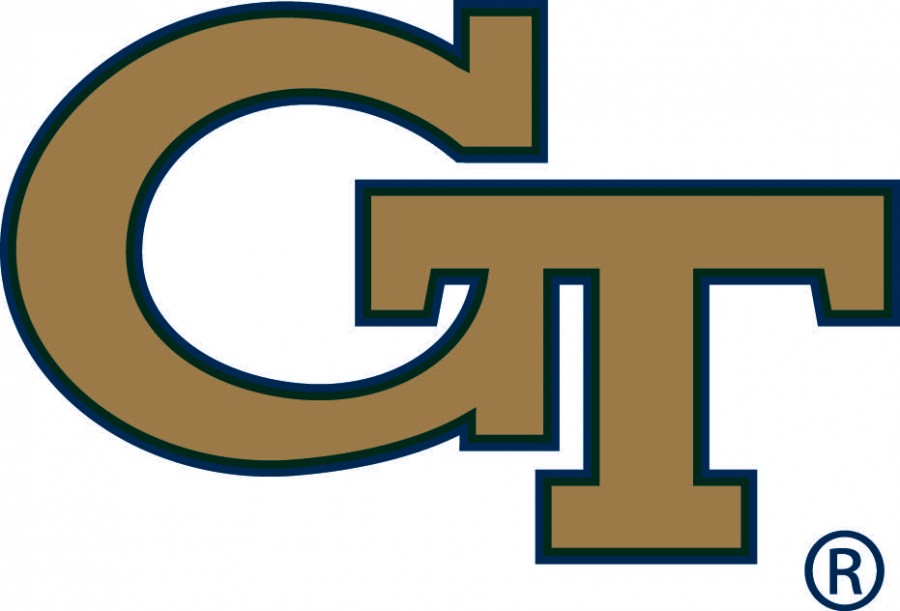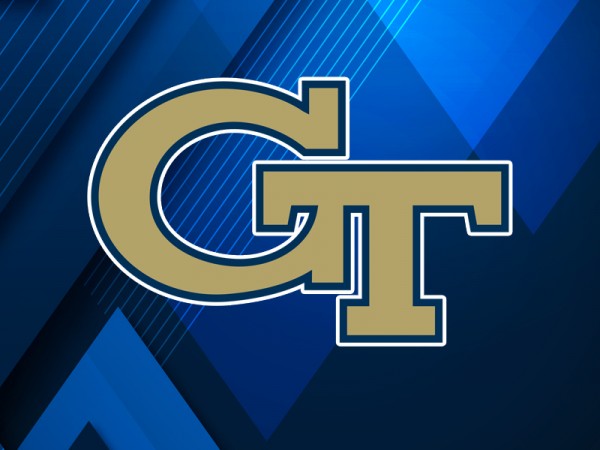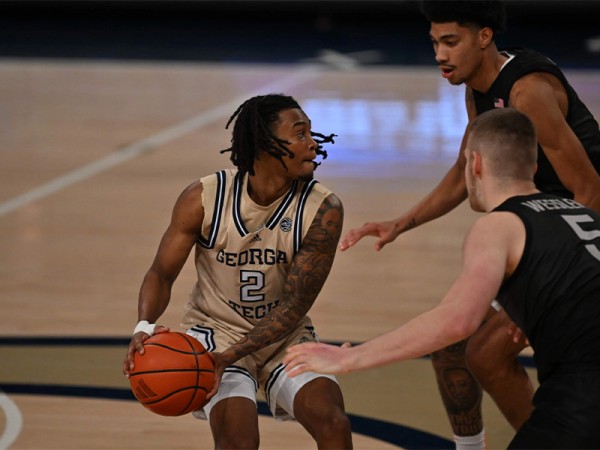ATLANTA (AP) — By all rights, Georgia Tech should be a powerhouse.
Atlantic Coast Conference pedigree.
New arena.
Stellar recruiting base.
Yet, the Yellow Jackets haven't been to the NCAA Tournament since 2010, a streak that seems unlikely to end with the team off to a 1-5 start in ACC play.
Why Georgia Tech isn't more successful is one of college basketball's big mysteries.
Coach Brian Gregory, whose job could be on the line without a major turnaround, said it's much tougher to move up in a league that expanded to 15 teams in recent years. Leading scorer Marcus Georges-Hunt points to the school's challenging admission standards. Television analyst Jay Bilas believes it's simply unfair to compare today's program to the one that Bobby Cremins guided to national prominence in the 1980s and '90s behind star players such as Mark Price, John Salley, Kenny Anderson and Stephon Marbury.
"Bobby Cremins coached in an eight-team league. You had everybody for four years back then," said Bilas, a former Duke star who works for ESPN. "The entire culture has changed."
Still, it's jarring for a program that reached the national championship game in 2004 to be in the midst of such a drought:
— Since that magical run, Georgia Tech has not finished above .500 in the conference, posting a cumulative ACC record of 61-127.
— Over the last 10 years, the Yellow Jackets haven't placed higher than sixth in the league standings.
— During that same decade-long span, they've managed only two NCAA tournament appearances and one postseason victory.
From the outside looking in, there are plenty of things to like about this program.
Membership in the ACC carries plenty of clout around the nation. The school totally rebuilt its arena, moving into 8,600-seat McCamish Pavilion in 2012, to go along with a state-of-the-art practice facility. The campus is located in the heart of Atlanta — an enticing urban setting for recruits — and the state of Georgia has an abundance of high school talent, much of it right within the sprawling metro area.
"Good things are just around the corner for us," Georges-Hunt insisted.
Indeed, the Yellow Jackets (11-8 overall) have been much more competitive in Gregory's fifth season as coach, bolstered by an influx of transfers and a more entertaining style of play. But the record looks much the same after a string of close losses (five ACC defeats by a total of 26 points) against a brutally tough schedule.
There were road losses at No. 2 North Carolina and No. 25 Notre Dame, as well as a setback at formerly ranked Pittsburgh. There was an excruciating 78-77 setback at home to Virginia Tech, when the Yellow Jackets squandered a 10-point lead in the closing minutes, as well as a 75-71 defeat to No. 16 Louisville this past weekend.
The lone ACC victory was a 68-64 upset of No. 11 Virginia.
"If you look at the schedules in the league this year, two teams that really got hammered were Syracuse and Georgia Tech," Bilas said. "They were absolutely devastated. I know people say, 'Hey, everyone is playing the same people and all that.' But who you're playing, when you're playing, and where you're playing is a big deal."
It doesn't get any easier for the Yellow Jackets, who play at North Carolina State on Wednesday night, followed by a trip to Syracuse on Saturday.
"You've just got to keep the faith that it's going to break through," Gregory said.
Historically speaking, Georgia Tech has been in a downward spiral since the late 1990s, failing to make the NCAA Tournament in Cremins' final four seasons as coach.
After he was eased into retirement, Paul Hewitt led the Yellow Jackets to the cusp of a national championship in his fourth season, but that proved to be an anomaly. Hewitt was fired in 2011, taking with him a regrettable long-term contract that's still bleeding the school's strapped athletic budget.
Gregory was an affordable replacement coming from Dayton, but he's 66-79 overall and a dismal 20-56 in the ACC, his rebuilding efforts toughened by the ACC adding Syracuse, Notre Dame, Louisville and Pitt.
"It's not a league that's easy to move up in the rankings," he said. "It's been difficult, there's no doubt about it."
Gregory shrugged off questions about his future, and Bilas said it's going to take more than a coaching change to turn things around.
"It's not just hiring a good young coach," Bilas said. "It requires a commitment to be really good by the entire institution. That means the administration. that means admissions, that means everything."












